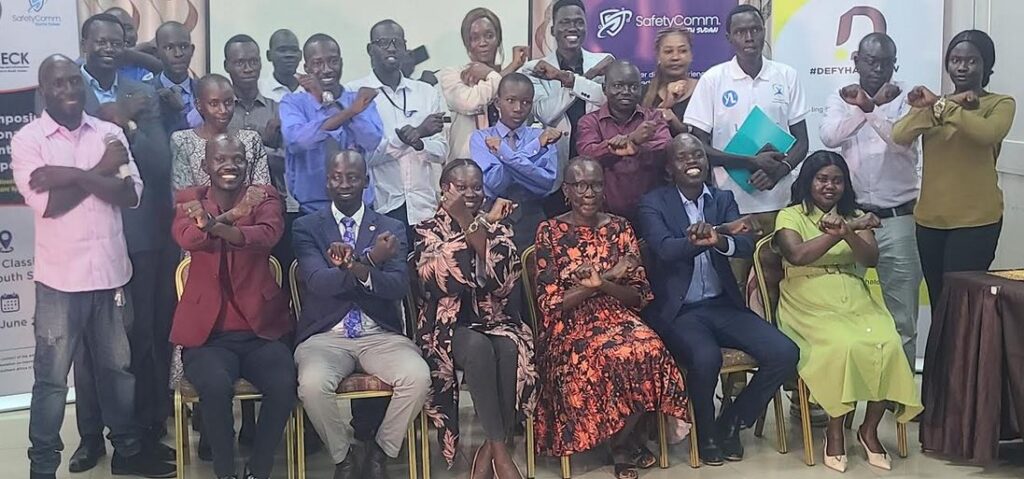As South Sudan commemorates the International Day to Counter Hate Speech, Nelson Kwaje, the Chairperson of Defyhatenow, a project that aims to combat hate speech, disinformation, and incitement to violence online and offline, on Friday called on the youth and citizens to shun the use of hate speech and focus on national building.
18 June was declared by the United Nations General Assembly as an international day for countering hate speech to promote interfaith and intercultural dialogue and tolerance as effective counters to hate speech.
In South Sudan, Defyhatenow decided to commemorate it on the 21 June by conducting a national symposium, bringing young people from various walks of life including from learning institutions like schools and universities.
Speaking at the event, Kwaje pointed out that the day is not only to counter hate speech but also to celebrate those involved in efforts to end hate speech.
“On this significant day, as we mark the International Day for Countering Hate Speech, we come together to affirm our commitment to fostering understanding and unity in South Sudan,” he said. “We will not only recognize the destructive impact of hate speech but also celebrate the tireless efforts of those who combat hate speech in many forms. It is a collective responsibility to ensure that the language of hate is changed.”
To bring change among the youth, Kwaje urged the participants of the two-day symposium to embrace change of mind and learn from the past because young people have been used as agents of hate speech in the past.
“I have seen a lot of young people also employing their energy to spread hate and as you come here, at least have the idea that you want to equip yourself to be a change agent,” he advised.
For his part, Kaunda David, a representative of Amalna South Sudan, a national non-governmental organization, said most communities in South Sudan have resorted to the use of hate language which is a practical cause of hate speech.
He added that social media platforms are being used for posting abusive content and he urged young people to change and become peace makers.
“During the 2013 conflict, I was reading posts online that people were abusing themselves, insulting and inciting one another. There was bad hate speech during that time,” he highlighted. “So, you can see that South Sudan being a country that went through wars, there is a lot of hate speech that has been circulated.”
David added: “Today, we need to convert these messages of hate to messages of peace.”




